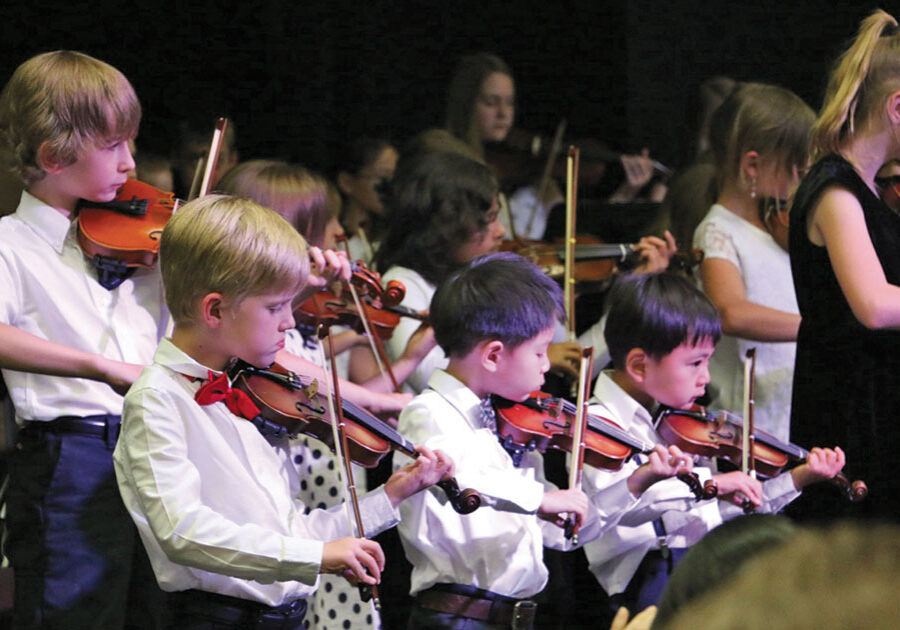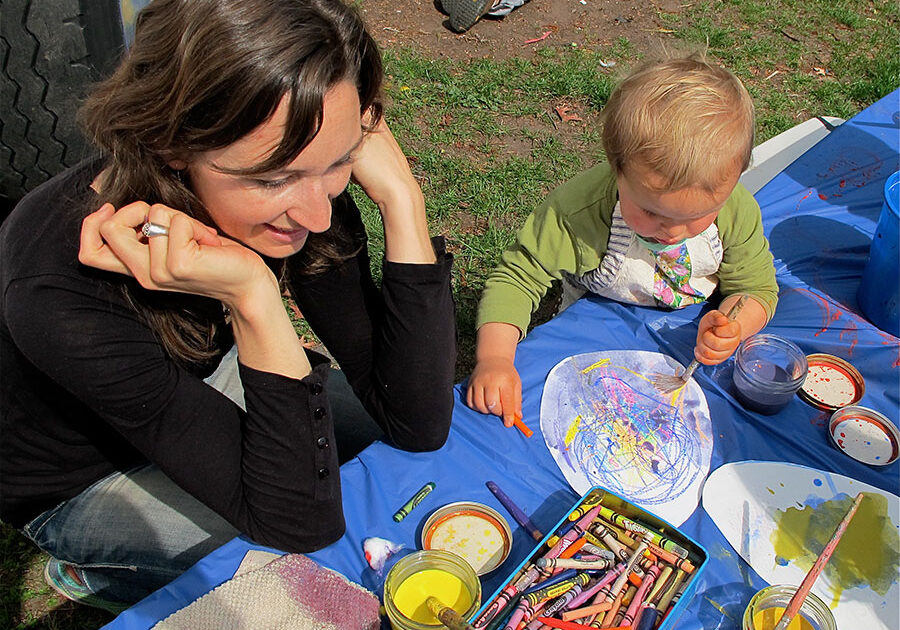It happened a couple of years ago. My ten-year-old daughter was moping around the house, grousing about some aspect of our lives that was not as ideal as she perceived her friends’ lives.
And that’s when the light bulb went off.
“Hey, why don’t you go upstairs and practice your choir songs,” I said in as non-punitive a tone as I could muster. Truth was, I was tired of the grousing. Comparing her life to her friends’ lives was becoming a bad habit. But my daughter had been singing in her elementary school choir once a week before school for a couple years, and she had recently been chosen to attend the state choir event.
The director sent the kids home with a CD of music to each listen to and practice on their own. I decided to jump on this opportunity to give my non-instrument playing daughter a bit of regular “singing practice” time.
My suggestion caught my daughter off guard. She paused, perhaps about to argue, but then thought about it, shrugged and said, “Okay.”
As she retreated up the stairs, I called after her cheerily, “Give it at least 20 minutes of practice, okay?” I had the feeling I was onto something.
Moments later, the sound of her voice came wafting down the stairs. The kid who had been moping about was now totally immersed in her music study.
Thirty minutes later, she skipped down the stairs, humming and cheerful. “What’s for dinner?” she said. “Can I make it?” I’d hit the mood-improvement jackpot for my child.
Since then, “singing practice” has become something of an institution in our home. No matter how many times I suggest, “Time for singing practice?” to my daughter, she never argues, she’s always willing to give it a go. And every time she does it, her mood is lifted and her attitude gets an adjustment without any fussing or futzing from me.
I’m not sure whether singing practice can work the same magic for every child, but now that you know how powerful the practice might be, doesn’t it seem silly not to try it with your own song-loving kids?
Singing is healthy physically, psychologically, and socially whether your child’s singing is pitch-perfect or not. Once you consider the many benefits singing can have on any member of your family, you may even decide to set aside your own daily singing time, and start to look for ways to get your whole family singing together and with others.
If you are not convinced, you will be, once you check out this list of 70 good reasons to sing more regularly:
- To lift spirits and lighten moods
- To learn to express a range of feelings
- To recognize song patterns, rhythms, and rhymes
- To find comfort or solace
- To pass the time
- To calm anxious nerves
- To avoid boredom
- To recover from disappointment
- To make any experience more fun
- To release frustration
- To focus the mind
- To relax the body
- To develop a stronger musical ear
- To improve body rhythm
- To become a better listener
- To work on skills of imitation
- To develop memorization skills
- To learn how to concentrate over time
- To inspire the imagination
- To understand storytelling better
- To increase self-confidence
- To experience a sense of doing something constructive
- To learn new words
- To expose yourself to many song styles
- To improve math aptitude
- To carry on family, religious, or state traditions
- To make a contribution
- To learn about history
- To stimulate brain development
- To discover personal tastes
- To become a better communicator
- To exercise the lips, tongue, mouth, and face
- To improve articulation
- To cause endorphins to flow
- To help the brain learn to multitask
- To speak with more eloquence
- To learn about contrast and opposites
- To share something special with others
- To make music for free or inexpensively
- To aid healing
- To create a positive relationship with the self
- To feel more grounded and present
- To explore personal vocal range
- To find a more natural speaking voice
- To develop a sense of musical artistry
- To release oxytocin, a natural stress reliever, in the brain
- To sleep better at night
- To strengthen your heart
- To improve your posture
- To feel safe and secure
- To exercise the lungs, abdomen and rib muscles
- To boost your immune system
- To open up your sinuses and respiratory tubes
- To develop a healthier breathing pattern
- To experience joy
- To feel individual power
- To get involved in the arts
- To have the experience of reaching goals
- To alleviate some symptoms of depression
- To encourage creativity through song invention or adaptation
- To appreciate all forms of music better
- To make the most of your vocal potential
- To notice nuance and subtlety in vocal performances
- To improve the quality of your signing voice
- To participate in something positive
- To better appreciate a variety of human experiences
- To develop a sense of command over your voice and body
- To develop leadership skills in a community
- To make your life rich with song
- To remember you are an instrument
Posted in: Art & Music, Youth & Teen
Comment Policy: All viewpoints are welcome, but comments should remain relevant. Personal attacks, profanity, and aggressive behavior are not allowed. No spam, advertising, or promoting of products/services. Please, only use your real name and limit the amount of links submitted in your comment.
You Might Also Like...

Pros and Cons of Teenage Jobs
There are arguments both for and against a teenager getting a job, especially when employment happens during the school year. Jobs can teach teenagers life-long work skills such as how […]

Strings in Schools – Violin, Flute and Kindermusik in the North State
Violins come in eight sizes, the smallest size merely 14.5 inches in length from scroll to end button. This adorable instrument fits snugly into the arm span of very young […]

New Teen Driver in Your Family? Promote Safety with Practice and Patience
Lowering Their Risk Your teenager’s itching to get into the driver’s seat and you’re terrified? Parents have good reason to feel panicky. The Centers for Disease Control reports that drivers between […]

Money Wisdom: Growing Savvy Spenders
We have all heard the old adage, “money doesn’t grow on trees.” While most adults can attest to the truth in that saying, we can also take a lesson from […]




